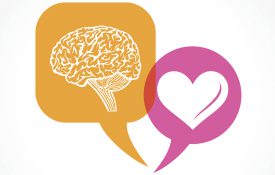
People are much more likely to decide to donate a kidney to a stranger -- an extraordinarily altruistic act -- in areas of the United States where levels of well-being are high, researchers find.

Research shows that donors are more generous when they’re asked to give a hypothetical amount to one person before deciding how much to actually donate to a group of needy people.

A series of experiments suggests that people are more likely to donate money to help victims of natural disasters as opposed to human-made catastrophes.

People pay more attention to the number of people killed in a natural disaster than to the number of survivors when deciding how much money to donate to disaster relief efforts, according to new research

A study shows that training adults in compassion can result in greater altruistic behavior.

Children as young as 4 years old may reap better health from altruistic giving, a behavior that tends to be less common among kids from high-income families.
